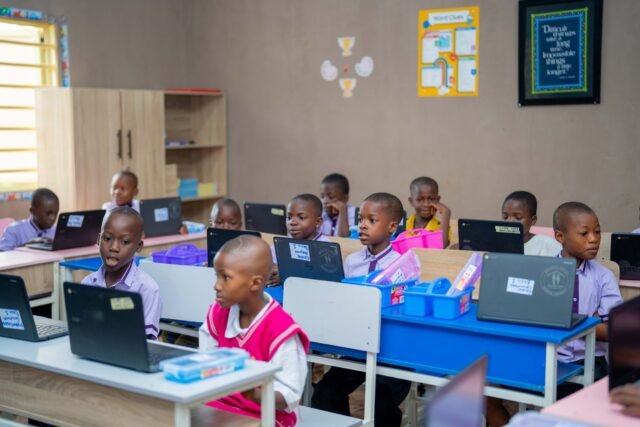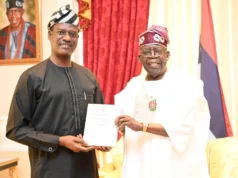In the quiet town of Ewatto, Esan South-East Local Government Area of Edo State, a bold step has just been taken to reshape the future of rural education. A new tuition-free digital school known as Equity Learning Academy (ELA) has officially opened its doors, promising to provide children from disadvantaged backgrounds with the kind of learning opportunities often reserved for urban centres and wealthy families.
The school’s launch has been described as a landmark for basic education in Nigeria, offering not just free access to learning but also the integration of cutting-edge technology into every classroom. In a society where many rural children struggle to stay in school due to poverty, lack of infrastructure, or poor teacher availability, ELA brings hope and a new model of inclusivity.
Equity Learning Academy is not an ordinary school. It is built on the GradeX school management platform, a digital system that manages attendance, generates personalised lessons, tracks assessments in real-time, and even supports the distribution of meals. Parents are kept informed with daily digital reports, giving them direct insight into their child’s progress and welfare.
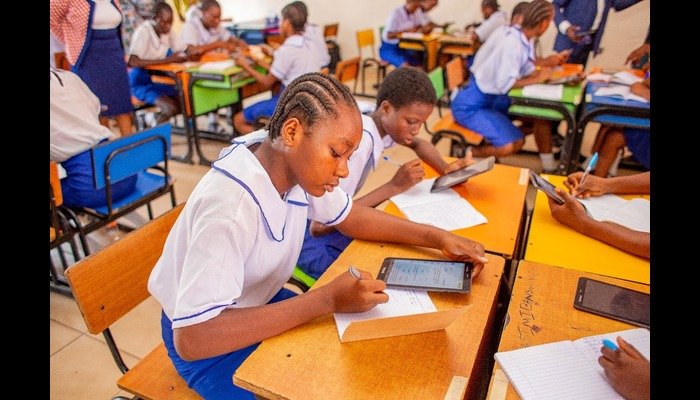
Table of Contents
Closing the Gap Between Rural and Urban Education
At the inauguration ceremony, the founders — Dr. Friday Airhia and Prof. Bosede Airhia — explained that the academy was created to address a glaring challenge: the wide gap between rural and urban education in Nigeria. Too often, children in villages are denied access to modern tools that can help them compete with peers in cities.
To bridge this divide, every child from kindergarten to Basic 1 at ELA will receive a laptop, making the school one of the few tuition-free institutions in Nigeria to provide such digital access from the start. Lessons will be tailored to each learner’s pace using artificial intelligence tools embedded in GradeX.
“This school is designed to give rural children the same opportunities their counterparts in Lagos or Abuja enjoy,” Dr. Airhia said. “We are committed to building a system where no child is left behind simply because of where they were born.”
The initiative goes beyond handing out gadgets. It seeks to establish an ecosystem where assessments are instant, attendance is tracked without bias, and lessons adapt dynamically to each pupil’s needs. This approach is aimed at boosting literacy, numeracy, and creativity, while also instilling accountability for teachers, parents, and administrators alike.
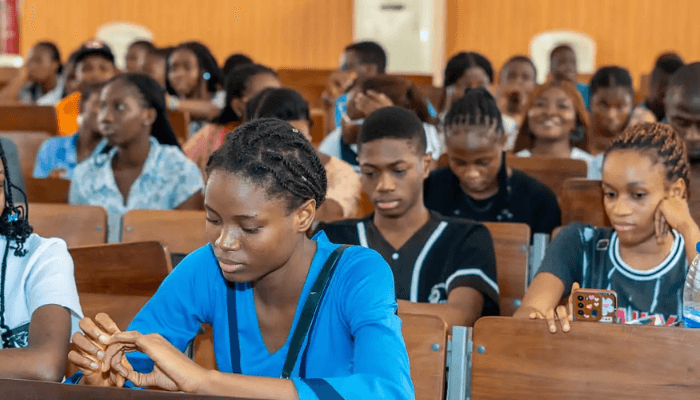
Government Support and Community Impact
The school’s unveiling was attended by Edo State’s Commissioner for Education, Dr. Paddy Emmanuel Iyamu, who praised the academy’s vision and described it as a game-changer. He noted that the government has long recognised the challenges facing rural schools, including overcrowded classrooms, poor infrastructure, and limited access to qualified teachers.
“By offering a tuition-free digital school, Equity Learning Academy is showing us what is possible when innovation meets commitment,” Dr. Iyamu said. “If this model is sustained and expanded, it could very well set the standard for rural education not just in Edo, but across Nigeria.”
The community of Ewatto has already begun to feel the ripple effect. Parents who once worried about their children dropping out due to school fees or lack of facilities are now hopeful. Young learners who might otherwise have been left behind are being introduced to laptops, e-learning platforms, and modern classroom experiences — all without their families paying a single kobo in tuition.
A Pathway for the Future
The opening of this tuition-free school carries broader implications for Nigeria’s education system. If successful, the model could be replicated across other rural communities where access to quality education remains limited. Its potential benefits are significant:
- Accessibility for all: By removing tuition and providing laptops, ELA ensures that financial barriers do not prevent children from enrolling.
- Data-driven learning: The integration of GradeX allows for personalised learning, ensuring no pupil is left behind.
- Greater accountability: Parents, teachers, and administrators have access to real-time data, helping them make informed decisions.
- Inspiration for expansion: The programme may inspire similar projects across Nigeria, paving the way for a more equitable education system.
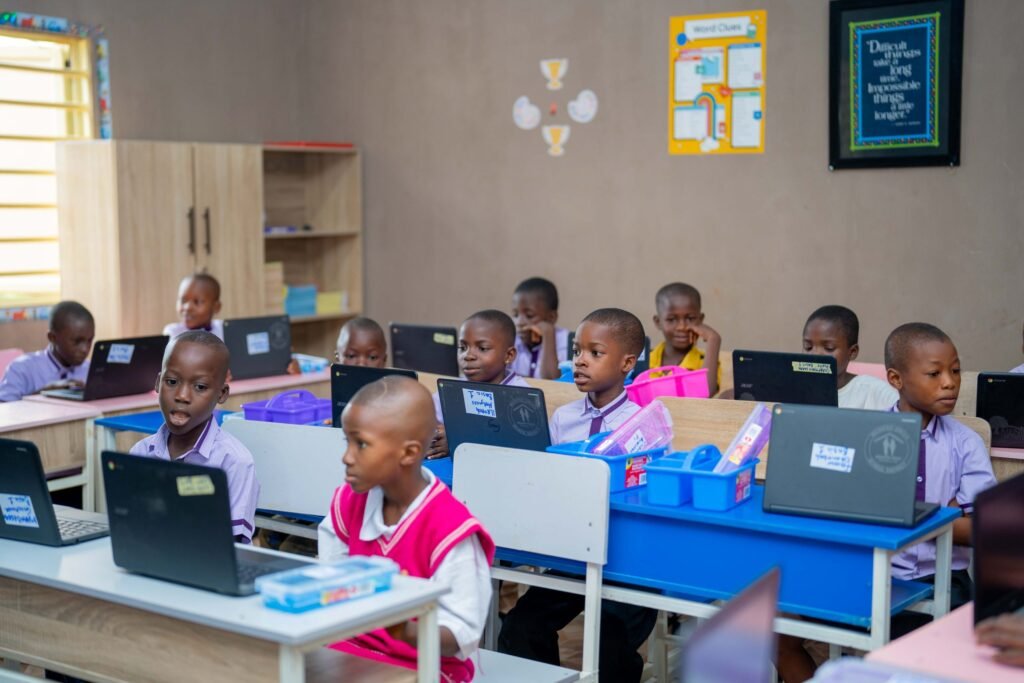
Challenges remain, of course. Reliable electricity, internet connectivity, and continuous teacher training are essential to sustain the momentum. The digital devices will also need regular maintenance and upgrades to remain effective. Yet, despite these hurdles, stakeholders remain optimistic.
For rural families, the promise of a consistent and modern education is life-changing. For Nigeria, the launch of this tuition-free digital school represents a possible blueprint for transforming education in underserved communities.
As the first set of pupils walk into classrooms armed with laptops and curiosity, Ewatto is proving that big ideas do not have to start in big cities. Sometimes, innovation begins in the quietest corners — and grows into a movement that changes lives.
Join Our Social Media Channels:
WhatsApp: NaijaEyes
Facebook: NaijaEyes
Twitter: NaijaEyes
Instagram: NaijaEyes
TikTok: NaijaEyes
READ THE LATEST EDUCATION NEWS


